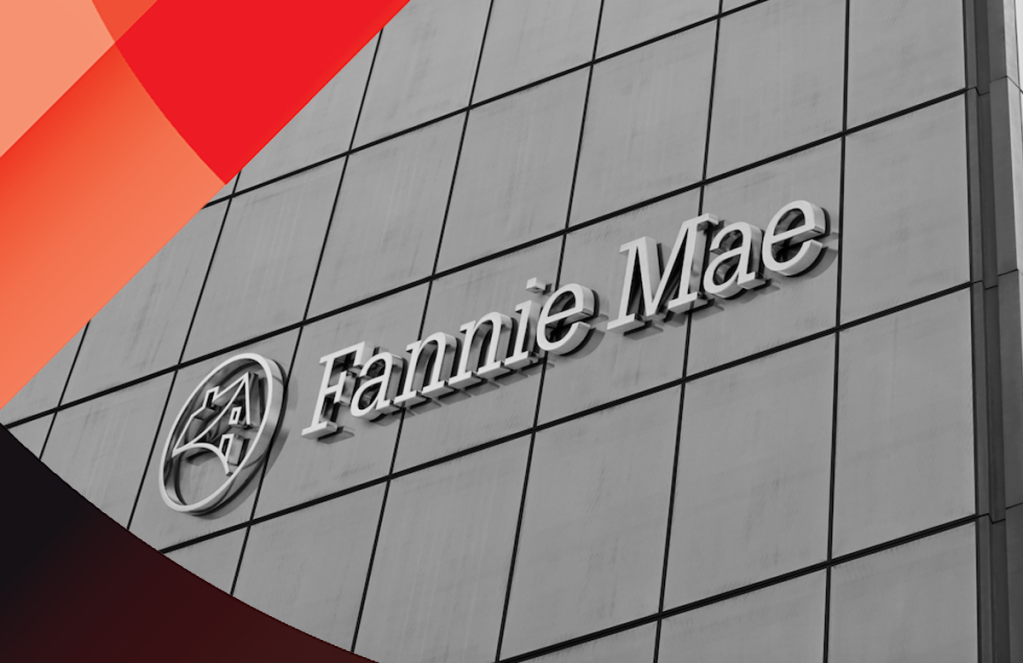Fannie hits $5 billion in risk-sharing with latest CRT deal

Fannie Mae has priced its fourth Connecticut Avenue Series (CAS) credit-risk transfer deal of 2022, a $1.14 billion note offering backed by a reference pool of some 118,000 single-family mortgages valued at $36 billion.
The offering is slated to close April 8, according to a presale review by the Kroll Bond Rating Agency (KBRA) and involves transferring a portion of the reference loan-pool risk to private investors through the CAS real estate mortgage investment conduit, or REMIC.
“With the completion of this transaction, Fannie Mae will have brought 48 CAS deals to market, issued over $55 billion in notes, and transferred a portion of the credit risk to private investors on just over $1.8 trillion in single-family mortgage loans, measured at the time of the transaction,” a Fannie Mae summary of the latest transaction states.
Earlier this year, a Fannie executive said the agency, subject to market conditions, expects to issue $15 billion in notes through CAS transactions in 2022. This latest deal brings the agency, after slightly more than three months into the year, to about $5 billion in CAS notes issued — or about one third of the way to its annual goal.
The states with the largest concentrations of mortgages in the loan pool for the latest offering, dubbed CASE Series 2022-R04, are California, 20%; Florida, 6.2%; Texas, 6.0%; Washington, 4.6%; and Colorado, 4%, according to KBRA. The leading originators for the loans in this latest offering and the percentage of loans originated in the reference pool are United Wholesale Mortgage, 6.9%; Rocket Mortgage, 6.1%; Homepoint, 5.3%; and Pennymac, 4.9%.
Fannie, in announcing this latest CAS offering, notes that “the loans included in this transaction are fixed-rate, generally 30-year term, fully amortizing mortgages and were underwritten using rigorous credit standards and enhanced risk controls.” The loans in the reference pool have an average balance of $309,086, the KBRA report shows, and were acquired between April and May in 2021, according to Fannie.
KBRA’s review of the offering notes, however, that nearly 32% of the loans in the reference pool were granted appraisal waivers.
“It should be noted that while the acceptability of a property value or sales price based on the use of proprietary models and market data is assessed, it does so without Fannie Mae having performed a property review or having obtained a valuation of the property,” the KBRA report states, referring to the appraisal waivers. “As a result, KBRA applied a broad valuation haircut to such loans.”
KBRA also dinged the reference pool’s average loan-to-value (LTV) ratio relative to recent offerings made through the private label market.
“The underlying reference obligations are characterized by original LTV ratios that are greater than 60%, but less than or equal to 80%,” the KBRA report states. “… While the reference pool’s weighted average LTV and combined LTV represent significant borrower equity and provide a margin of safety against potential home-price declines, both leverage ratios are somewhat higher than most of the recent non-agency prime RMBS transactions that KBRA has rated.
“KBRA views higher levels of equity in the property to be among the best deterrents of default, particularly when home prices come under stress.”
The initial Fannie CRT deal of 2022, CAS 2022-R01, involved a $1.5 billion note issued against a reference loan pool of 180,002 residential mortgages with an outstanding principal balance of $53.7 billion. CAS Series 2022-R02, the second offering this year, involved transferring loan-portfolio risk to private investors via a $1.2 billion note offering backed by a reference pool of 149,393 residential mortgage loans valued at $44.3 billion.
CAS Series 2022-R03 involved transferring a portion of the agency’s loan-portfolio risk through a $1.24 billion note offering backed by a reference loan pool of 150,395 primarily single-family mortgages valued at $44.4 billion.
“The FHFA has encouraged credit-risk transfer transactions as part of portfolio credit risk management, promoting partial reallocation of mortgage risk to private-market participants, and ultimately, reducing taxpayer exposure to borrower default and mortgage guaranty obligations,” the KBRA presale-rating report states. “… In most of those credit-risk transfer transactions, Fannie Mae transfers a significant portion of the losses they expect would be incurred in a stressed credit environment.”
The post Fannie hits $5 billion in risk-sharing with latest CRT deal appeared first on HousingWire.




 :215-447-7209
:215-447-7209 : deals(at)frankbuysphilly.com
: deals(at)frankbuysphilly.com
